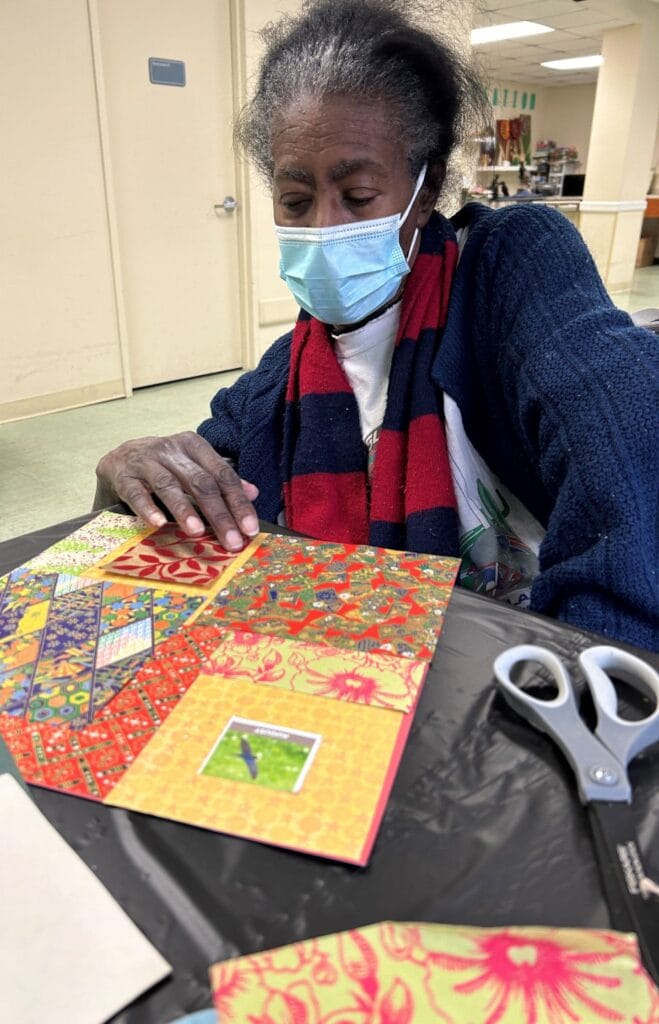
The Washington Heights neighborhood of Upper Manhattan is a bona fide melting pot of cultures.
That’s why staff at MJHS Isabella Center for Rehabilitation and Nursing Care make sure residents have a variety of opportunities to engage with their vibrant past as part of Black History Month programming.
Events are intended to detail the rich tapestry of Black history while providing residents a sense of independence and accomplishment using various mediums. You might find proof of success hanging on the walls.
“Our residents get to express themselves in a way that they may not be able to verbalize,” said Assistant Administrator Jessica Garcia-Robinson. “So they use the paper, pen or paintbrush to do so and not only that, there’s a self-confidence component to it. [To] see something go from bare to something colorful, to something that is unique.”
Among the activities planned this month were a talent show named for the legendary Apollo Theater in Harlem (including an in-person visit for some), art therapy that recreates famous works by Black and African-American artists such as Alma Thomas and Cloyd Lee Boykin, and discussions of historical texts by authors such as Toni Morrison.
“Our residents have lived through a lot and they have a lot to say about it and for me personally, I learn from their experiences and I’m fortunate enough to have that a dialogue with them,” said Garcia-Robinson. “It also lends to more on the deep knowledge of our residents which is significant in order to not only understand them but care for them.”
On paper, Black History Month may only last 29 days but Garcia-Robinson sees it as a year-round commitment. Black history is American history.
“Aside from spreading awareness, we’re celebrating our residents’ diverse backgrounds and for MJHS as a whole, it’s important that we reinforce our residents’ values in the way we care for them,” said Garcia-Robinson. “It also lends to ensuring that we care for them in a compassionate way that we are also reinforcing dignity and respect as well.”




